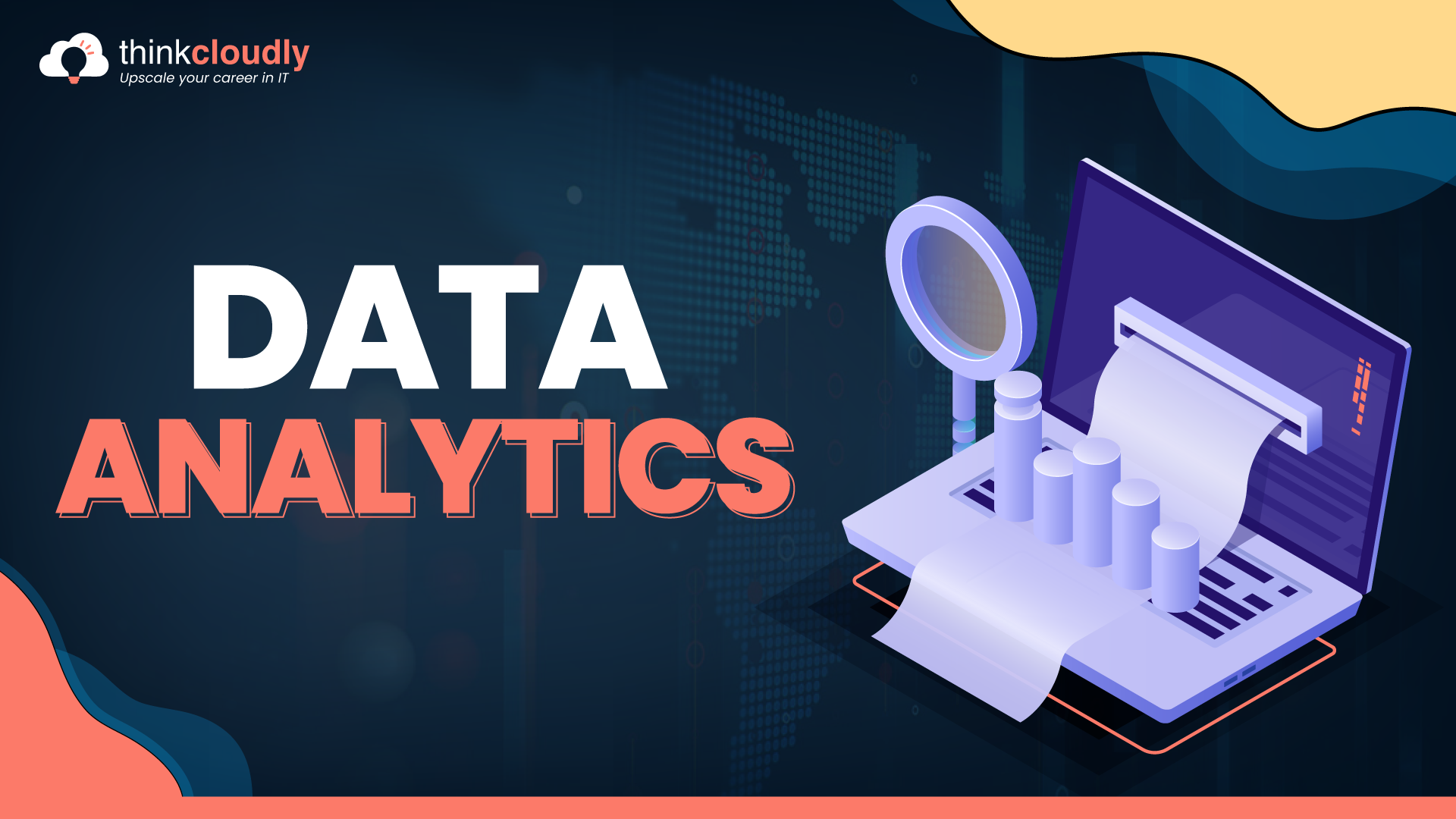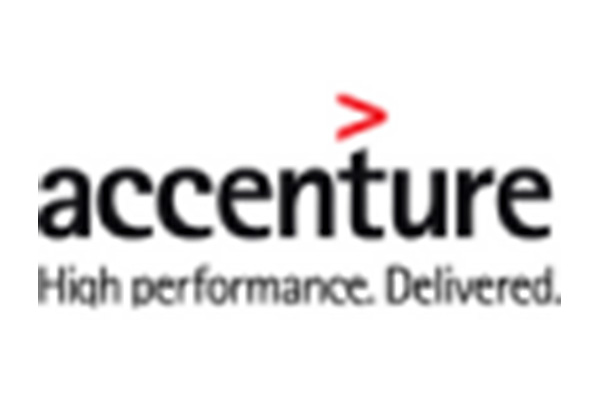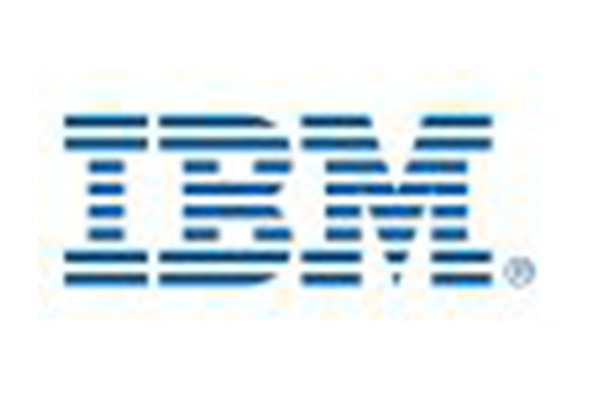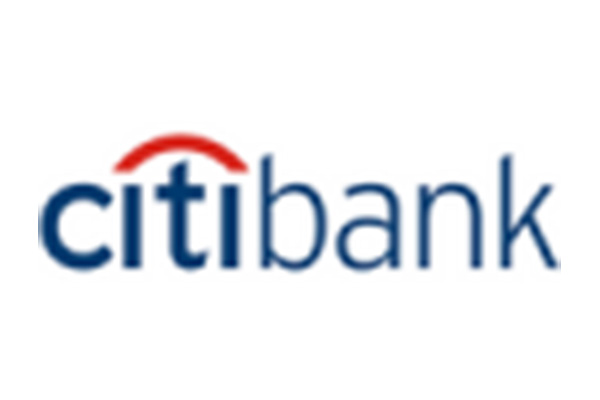Data Analytics Certification Program
Become Job-Ready in Data Analytics with ThinkCloudly!
Transform raw data into actionable insights with ThinkCloudly’s industry-focused course. Master trend analysis, predictive modeling, and data visualization using cutting-edge tools and techniques. Gain hands-on experience through real-world projects and prepare for high-demand roles in healthcare, marketing, retail, insurance, and technology industries.
Why Choose ThinkCloudly?
- Learn from expert instructors.
- Work on live projects for practical experience.
- Receive personalized career guidance to land your dream job.
Join ThinkCloudly and Shape Your Future in Data Analytics Today!

Mastering Data Analytics Course Highlights
Mastering Data Analytics typically covers a broad range of topics essential for understanding and working effectively with data, including data manipulation, feature engineering, and model evaluation techniques.
- Hands-On Learning
- Expert Instructors
- Data Collection and Cleaning
- Flexible Schedule
- Certification
- Big Data Technologies
- Statistical Analysis
- Data Ethics and Privacy
Data Analytics Certification Course Learnings
Efficient data querying and manipulation techniques using SQL.
Master the core concepts and methodologies for effective data management.
Uncovering patterns and insights within datasets through EDA methodologies.
Introduction to BI tools like Tableau and Power BI for creating interactive reports.
Real-world case studies and projects for practical application of learned concepts.
Mastering Data Analytics Course Curriculum
Module 1: Data Analysis Process
- Data basics – Concept of data, data types, classification of data, metadata
- Types of data analysis
- Data analysis process
- Tools for data analysis
Module 2:Excel Basics
- Excel features, Formulae
- Charts
- Pivot Tables
- Lookup
- Macros
- Power Tools – Power Query, Power Pivot
Module 3: Python Programming
• Introduction to Programming
• Variables, Data types, Operators
• Conditional statements, Loops
• Functions
• Exception handling
• File handling
• Modules and Libraries
• Libraries for data analysis – Numpy, Pandas, Matplotlib
Module 4: SQL Basics
• Introduction to databases – Relational Databases
• DDL, DML statements
• Union, Union All & Intersect Operators
• SQL Functions – Scalar, Aggregate, Date Functions
• Joins
• Stored Procedures, Triggers
• Subqueries
• Views & Indexes
Module 5:Data Preparation
• Defining data analysis project objectives
• Data sources, Collecting data
• Data Cleaning, aggregating and organizing data
• Data Preparation using excel
Module 6:Data Analysis
- Exploratory Data Analysis (EDA)
- Descriptive Statistics – Definitions
- Univariate Analysis – Examples
- Bivariate Analysis
Module 7:Data visualization and reporting data
- Reporting Data – Dashboards
- Reporting Data – Data Story
- Visualization Good Practices – Examples
Module 8:Responsible data handling
• Principles of responsible data handling
• Mitigating bias
• Data Regulations
Module 9: Specialization 1 - Advanced ML Track
- Data science project lifecycle
- Feature engineering
- Model development and Validation
- Model Evaluation, Deployment
- Machine Learning types and suitable algorithms
- Linear Regression
- Logistic Regression
- Decision Trees
- Naive Bayes, KNN, SVM
- Ensemble methods – Bagging, Boosting, Random Forests
- K-Means Clustering
- Hierarchical Clustering
- Principal Components Analysis (PCA)
- Recommender Systems
- Time Series analysis
- Introduction to Neural Networks – Deep Learning, Optimization Techniques, Gradient Descent
- Computer Vision
- NLP and Text Analytics
- Gen AI – Large Language Models, Prompt Engineering, RAG, Agentic systems
- Big Data & Hadoop Framework
- Machine Learning with Spark
Module 10: Specialization 2 - Data Analytics Track
What is Power BI?
Power BI Components
Power BI Architecture
Power BI Tools
Power BI Advantages
Training And Package Fee
Training Fee
Designed to get you trained with the core knowledge.
$899.00
- Online Live Training
- Live Projects
- Resume Building
- LinkedIn Grooming
- Profile Marketing
- Mock Interview Sessions
- Certificate Assistance
Job Seeker's Program Fee
Designed to make you job ready with knowledge, experience, and grooming.
$1400.00 $1150.00
£1299.00 £849.50
- Online Live Training
- Live Projects
- Resume Building
- LinkedIn Grooming
- Profile Marketing
- Mock Interview Sessions
- Certificate Assistance
Data Analytics Course Outcomes
Proficiency in Data Handling Techniques.
Proficiency with Business Intelligence Tools.
Application of Machine Learning Algorithms.
Utilization of SQL and Database Management.
Career advancement in data-related roles.
What roles you can play?
Data Analyst
A Data Analyst is the one who Analyzes data to extract valuable insights and inform business decisions.
Data Engineer
A Data Enginner Designs, constructs, and maintains scalable data pipelines for efficient data processing and analysis.
Data Scientist
Utilizes advanced statistical analysis and machine learning techniques to extract insights and build predictive models.
Business Analyst
Evaluates business processes and performance using data-driven insights to improve efficiency and profitability.
Operations Analyst
An Operations Analyst Optimizes operational processes by analyzing data to improve efficiency and reduce costs.
Research Analyst
A Research Analyst Conducts in-depth research and analysis to support business strategy development and decision-making.
Know before you Start
What's the focus of this Data Analytics course?
The focus of this Data Analytics course is to equip students with the skills and knowledge necessary to effectively collect, analyze, and interpret data to drive informed decision-making and solve real-world problems. Through a combination of theoretical concepts, hands-on exercises, and practical applications, students will learn key techniques in data handling, statistical analysis, machine learning, and data visualization. The course emphasizes practical skills applicable across various industries and sectors, preparing students for roles such as data analyst, business analyst, or data scientist. Additionally, ethical considerations and privacy concerns in data analytics are addressed to ensure responsible data handling practices.
What are the prerequisites?
Basic math/statistics knowledge is required. Familiarity with Python or Excel is helpful but not mandatory.
Which tools and software are covered?
- Programming Languages: Python and R
- Data Analysis Libraries: Pandas, NumPy, Scikit-learn (Python); tidyverse packages (R)
- Data Visualization Tools: Matplotlib, Seaborn, Plotly
- Database Management Systems: SQL
- Business Intelligence Tools: Tableau, Power BI, QlikView
- Machine Learning Frameworks: TensorFlow, PyTorch
- Big Data Technologies: Hadoop, Spark, Hive
How is the course structured?
It’s divided into modules covering data basics, visualization, statistics, and hands-on projects with real data.
What are the career prospects?
Graduates can pursue roles like Data Analyst, Business Analyst, or Market Research Analyst in various industries.
Skills You Will Gain
- Data Cleaning
- SQL
- R Programming
- ETL
- Statistics
- Excel
- Machine Learning
- Data Reporting
- Data Visualization
- Python
- Big Data Tools
- Cloud Computing
Certification Overview
What certification will I receive upon completing the course?
Upon completing the course, you will receive a certification specific to that program, such as a “Certificate of Completion” or a named certification related to the course content.
Why should I pursue a data analytics course certification?
A certification demonstrates your expertise and credibility in the field of data analytics, enhancing your career prospects and job opportunities. It provides validation of your skills to potential employers and clients.
What topics are covered in a data analytics course certification?
Topics typically include data collection, cleaning, and preprocessing, exploratory data analysis, statistical analysis, machine learning algorithms, data visualization, and tools such as Python, R, SQL, and popular data analytics libraries and frameworks.
Can I showcase this certification on my resume and LinkedIn profile?
You can showcase the certification on your resume and LinkedIn profile to highlight your skills and qualifications, demonstrating your commitment to professional development.
How long does it take to complete a data analytics course certification?
The duration of a data analytics course certification can vary depending on the program’s structure and intensity. Courses may range from a few weeks to several months, with part-time or full-time options available.
Our Students Work at












Mastering Data Analytics Course Reviews
FAQs
What is the payment procedure?
We accept all major credit and debit cards from leading banks. For any assistance, please contact Thinkcloudly Customer Support.
Which course or Plan is best for me?
We offer a variety of ways to learn about the cloud, from quick hands-on labs to technical deep dives. You can ask our experts to help you from their industry experience if you are uncertain about which course or plan to choose.
Would a Demo Session be available before I enroll?
Certainly, you can set up a free demo session, although if you’ve already viewed any sample recordings, you won’t need to look further. The enrollment process signifies a mutual commitment between you and us where you commit to be a good learner and we pledge to provide you with the best possible learning environment. A key part of your learning takes place in our sessions, which are supported by experienced instructors, dedicated Personal Learning Managers, and interactions with your peers. Get the full learning experience, and not just a demo.
When will I be able to access the Learning Content?
You will receive access to the LMS immediately after enrolling and will have it for the rest of your life. You will have access to all previous class recordings, PPTs, PDFs, and assignments. In addition, you will have instant access to our 24×7 support team. You can start learning as soon as possible.
I missed a class, what do I do?
At Thinkcloudly, you’ll never miss a lecture! You can view the recorded session in your LMS anytime also the missed session can be attended in another live batch.
Who are the intructors at Thinkcloudly ?
Teachers and tutors at Thinkcloudly are industry veterans with great experience.
Related Courses
Price:$899.00
Data Analytics Certification Program
$899.00








